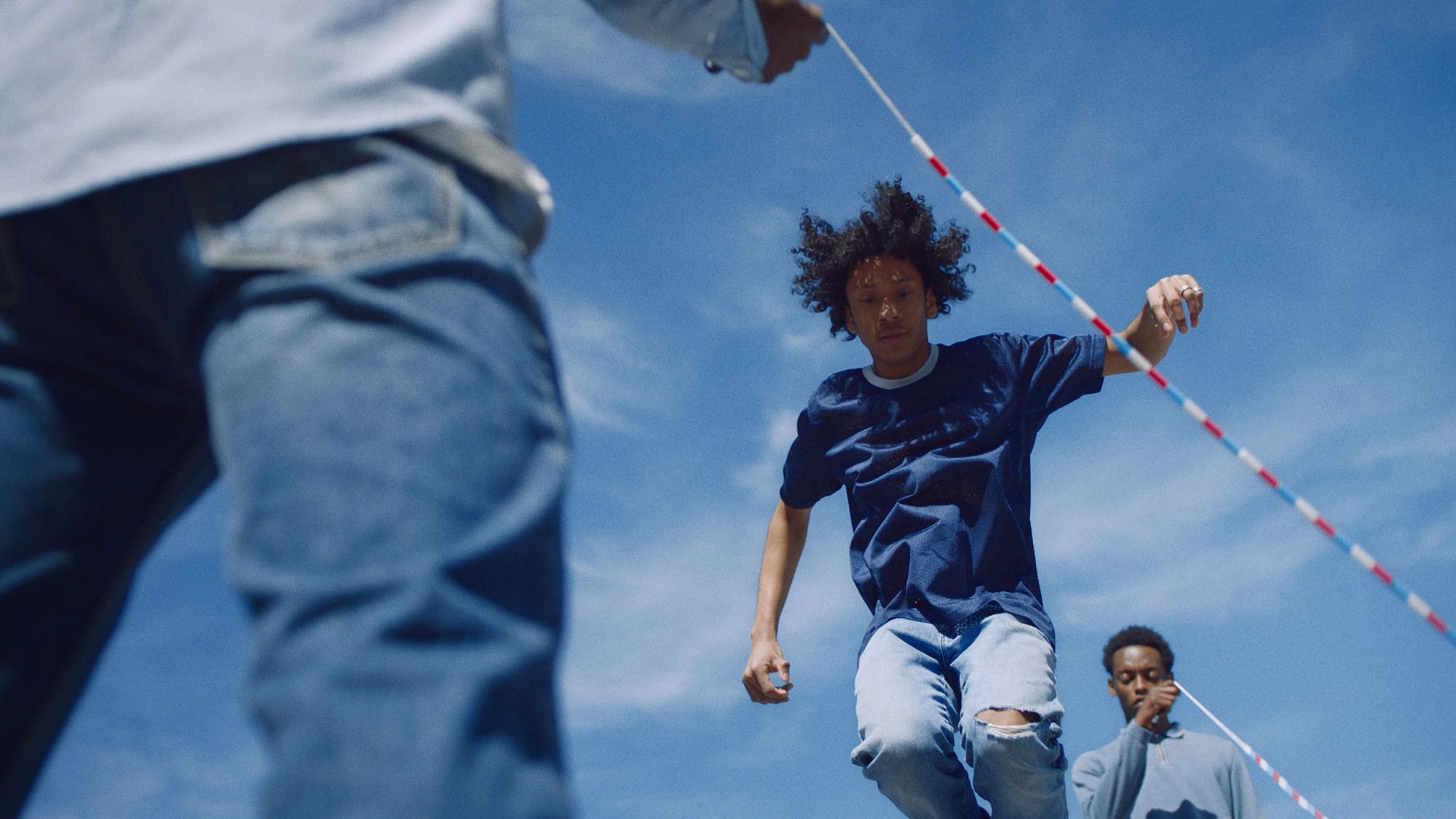In photographer Tyler Mitchell’s debut monograph “I Can Make You Feel Good,” Black youths, beautiful and carefree, are shown at play. Bathed in perpetual sunshine, they dance, run, swing hula hoops and relax on the grass. They pose against intensely saturated backdrops of pastel and primary colors.
One scene depicts a boy lying bare-chested on a field of wildflowers. In another, two young men skateboard together, their arms linked. Mitchell photographs friends spread out together on a checkered picnic blanket. He takes a portrait of a young woman in a white leotard-shirt against patterned yellow fabric, her eyes gently closed.
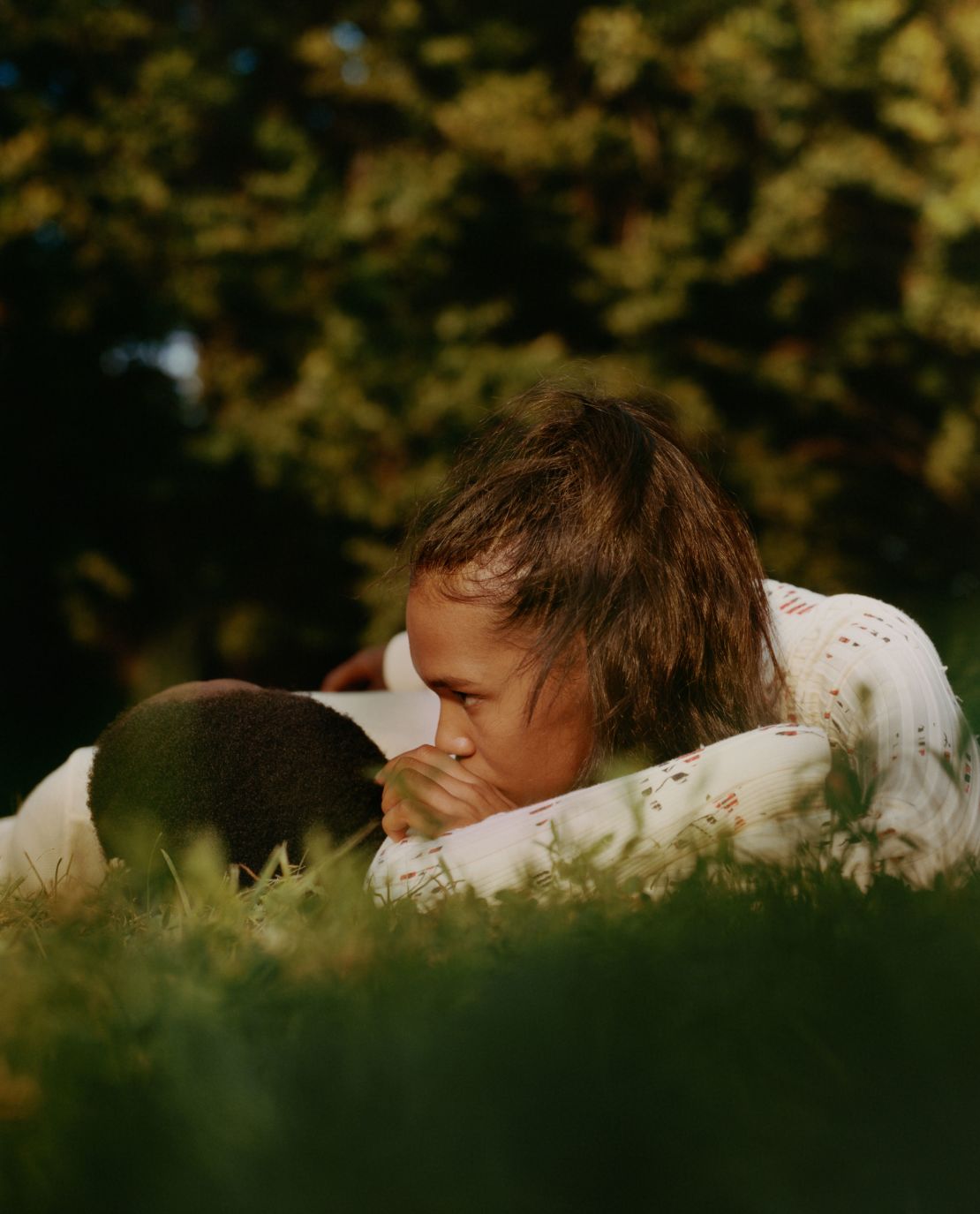
Over the past few years, the Georgia-born photographer has made a name for himself through his delicate, varied expressions of Black life. His now legendary Vogue cover shoot of Beyoncé propelled him into the spotlight, and he’s brought his distinct style of storytelling to labels including Marc Jacobs and Comme des Gar?ons, as well as publications such as i-D and GQ. He’s also recently mounted solo exhibitions of “I Can Make You Feel Good” at the International Center of Photography (ICP) in New York and at Foam in Amsterdam.
In this presentation of his work, each image celebrates of Black bodies and identity. Together, they form a world of unbridled, unbothered freedom – or, as Mitchell writes in his preface, “what a Black utopia looks like or could look like.”
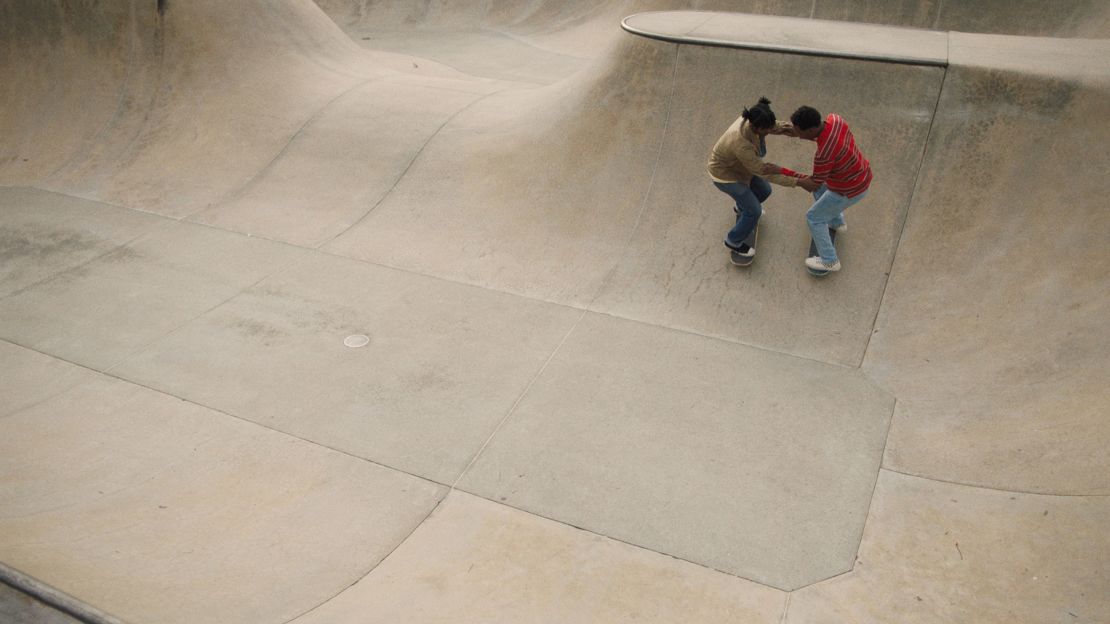
“People say utopia is never achievable,” the artist continues, “but I love photography’s possibility of allowing me to dream and make that dream become very real.”
A place to be
The vivid, lyrical portraits and tableau are a far-cry from the prevailing imagery of struggle and pain that’s long been associated with Blackness in media images. But that’s exactly what makes “I Can Make You Feel Good” a compelling collection.
“Tyler is creating a visual space for free-flowing Black joy,” said Isolde Brielmaier, who curated Mitchell’s New York exhibition, over the phone. “He’s always said how growing up he would see a range of images of happy, gleeful White people partaking in activities of leisure, but hardly any showing African-American communities engaged in those same joyful moments. With ‘I Can Make You Feel Good,’ he’s simply decided to finally give them a platform, as a means for positing a different reality that’s also always been around, and that we (as Black people) have long been occupying and living.”
The 25-year-old photographer, Brielmaier explained, isn’t interested in framing his work “as a counter-narrative to a dominant narrative – because that would only end up giving the latter more power,” but rather as a declaration that Black people, too, have their own untroubled world. “It’s a tender, loving celebration of Black community,” she added.
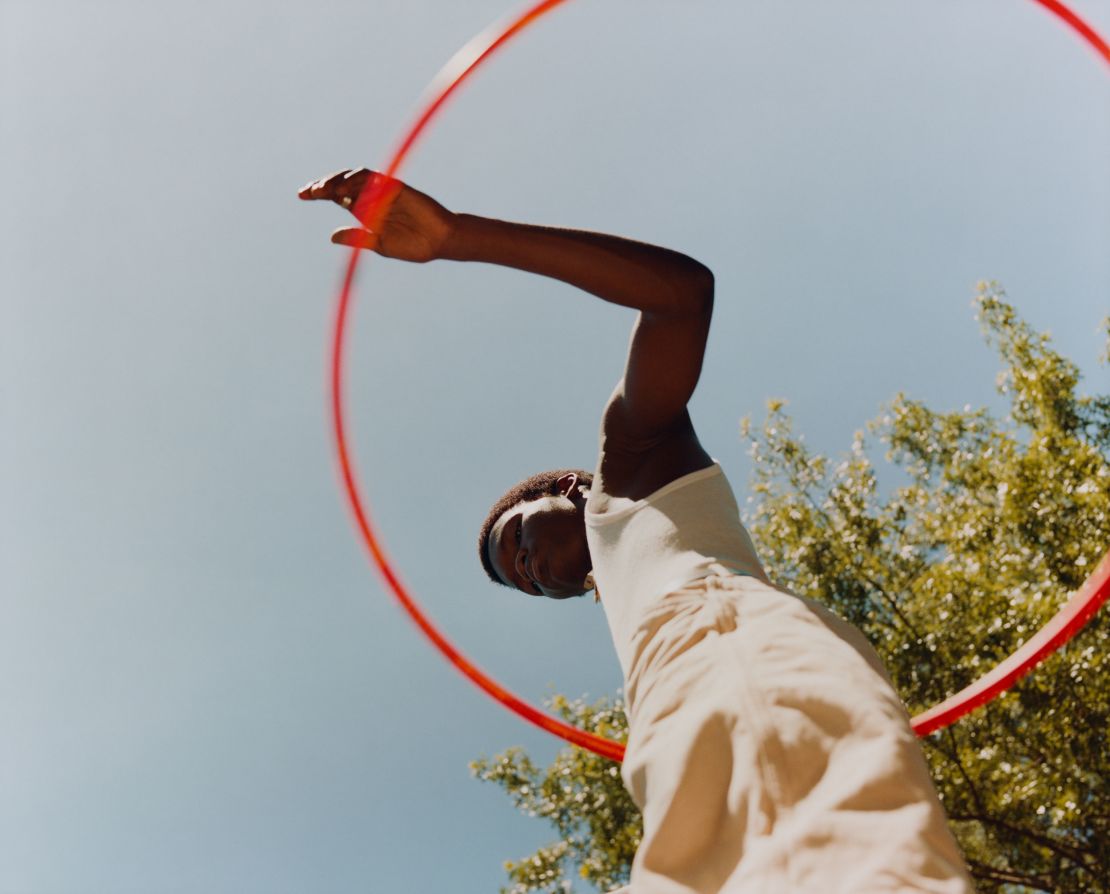
Foam curator Mirjam Kooiman agrees. “Historically speaking, there have been many artists who have made profound works on issues around the Black body, racism, and rewriting history,” she said in a phone interview. “Tyler often acknowledges those works, sometimes even referencing them in his own oeuvre. But his way of seeking attention from his audience is completely different. He’s shifting existing beauty ideals and visual narratives about being Black.”
An idiosyncratic vision
Since Mitchell emerged in the fashion and art world in his early 20s, he’s strove to create a single vision for the breadth of his work. “I view fashion as a space and opportunity to have clothes enhance my message about the Black body,” he writes in the book. “I make very little distinction between my commissioned and my personal works, using them both as an opportunity to create this utopian universe.”
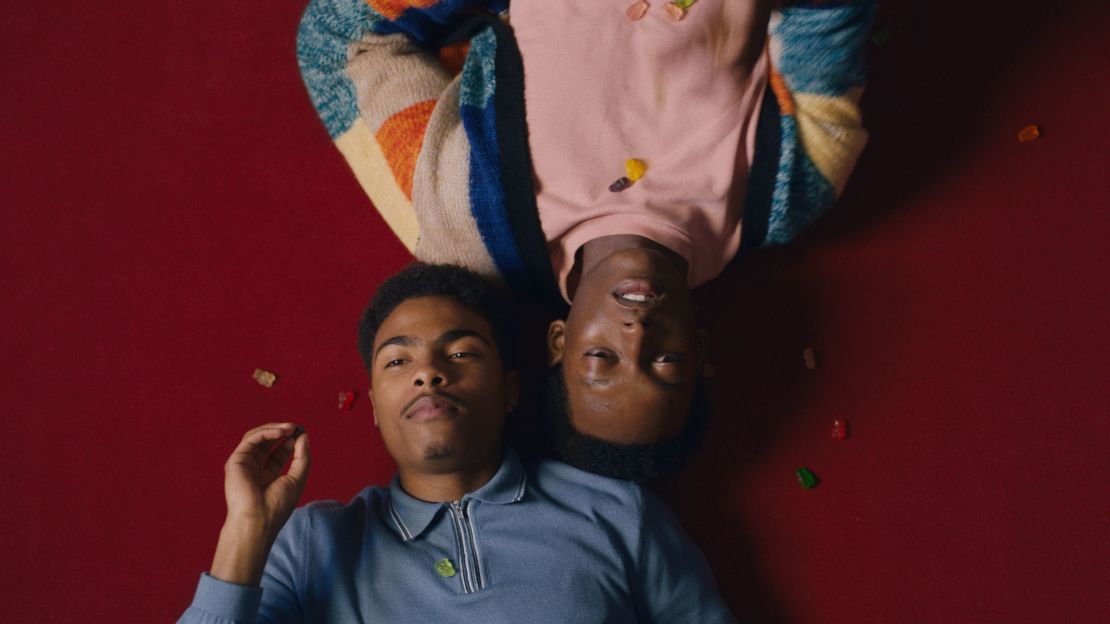
The technical way Mitchell reaches for that universe is also highly intentional. His photos are clear-focused, often tightly cropped and carefully composed. His color palette, too, is “incredibly important to him,” Brielmaier said. “The way he uses pastel hues – incorporating things like cotton candy, ice creams, blue skies – is directly related to this idea of litheness and lightness, of young Black people enjoying a constant state of summertime. There’s a unique emotive quality to the shades he picks.”
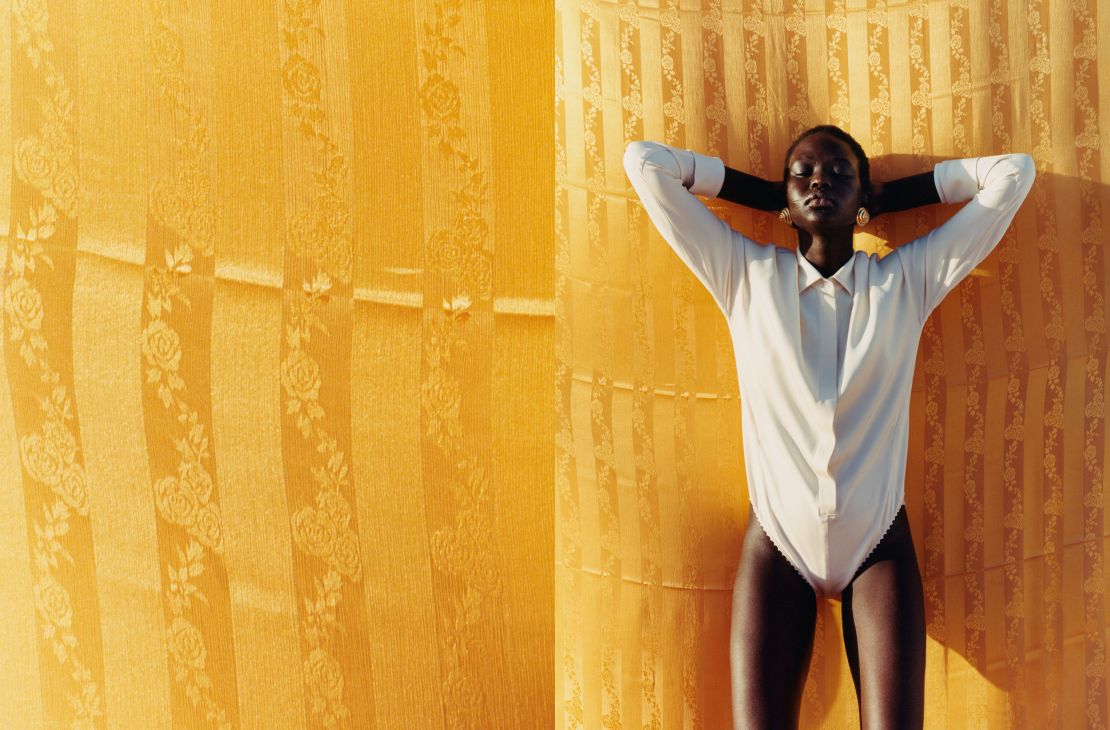
“Tyler has a remarkable full control over the kind of imagery he creates, from the scenes to his models, who he often encounters on the streets or on social media” Kooiman said. “He manages to strike this perfect balance between the real life he experiences and the world as he’d like to see it.”
In the wake of the racial justice protest movement that has rocked the US this summer, “I Can Make You Feel Good” is an ode to humanity and sensitivity.
“Documented and real, or fictitious and staged, my images are characterized by an interest in purity and intimacy,” Mitchell writes. “In them, models recline, embrace each other closely and peer into the lens, leaving evidence of a public display of affirmation in Blackness and a unifying visual text of hope.”
Tyler Mitchell’s “I Can Make You Feel Good,” published by Prestel, is out now.
